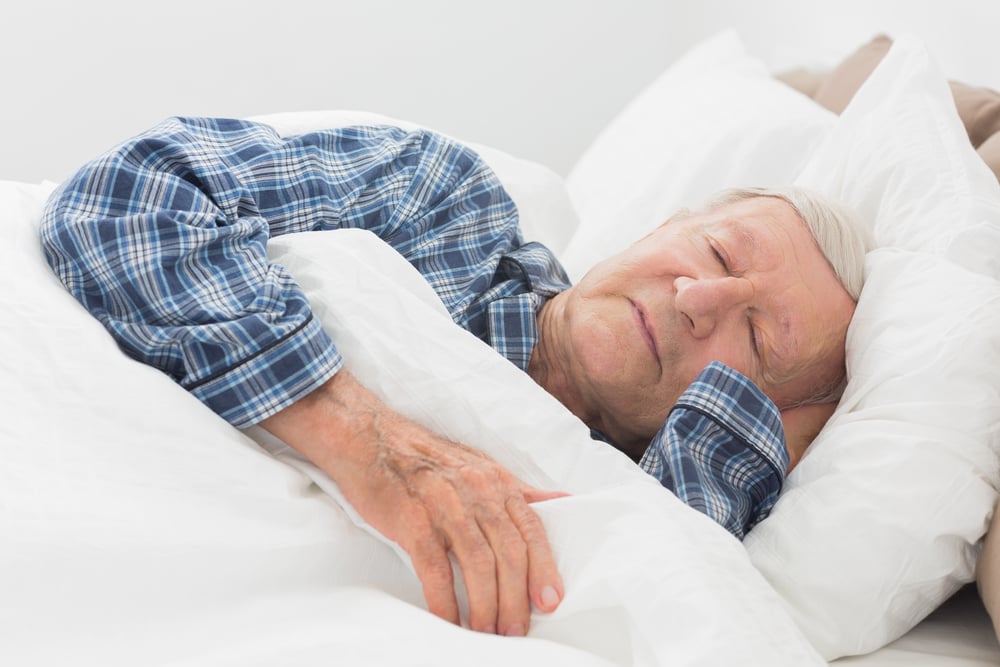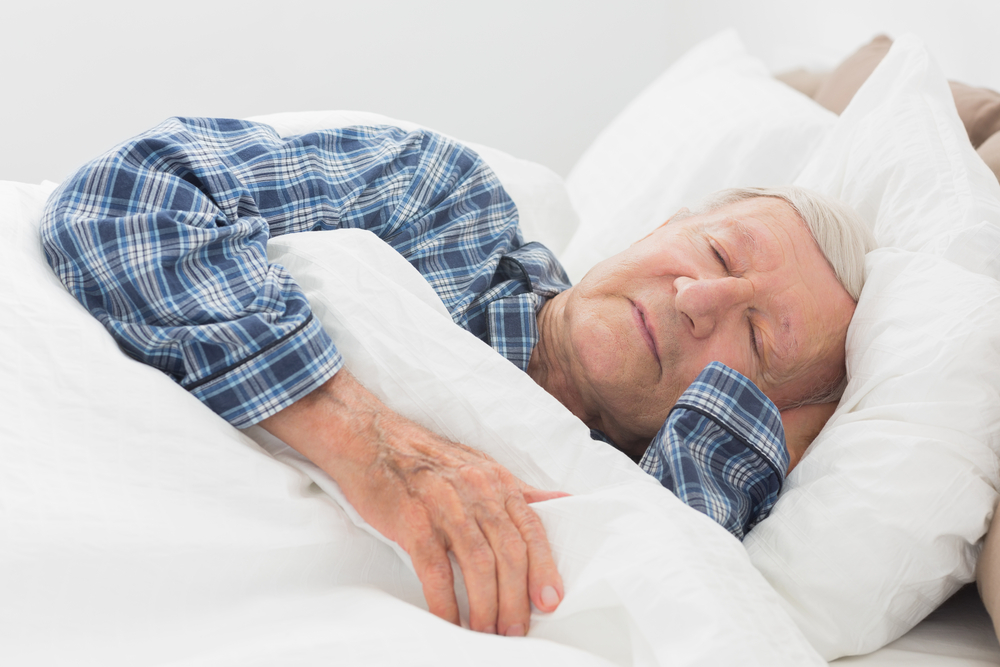Sleep is a crucial part of total health and wellness, yet seniors report more often than any other age category that they have difficulty sleeping. A good night’s sleep means better, more joyful days for seniors. There are several things seniors can try at home to help ensure a restful night’s sleep.

Having a Schedule
Going to bed at the same time every night, and getting up at the same time every morning, helps a person adjust to a natural sleep rhythm. Being mindful about eating habits – Alcohol, spicy foods, caffeine and a diet high in sugar can all cause sleep issues. Eating and drinking close to bedtime can also be a problem for some – rather than having a full meal before bed, it’s better to have a light snack or warm milk. Drinking any liquid can lead to having to get up and urinate during the night so watching how much and when you drink is important.
Journaling
Some sleep experts suggest keeping a journal each day to help you look for issues that might be leading to insomnia. Be sure to track food, exercise, and what you do in general each day, including the time. For instance, drinking a caffeinated drink may cause you to urinate hours later as it’s a diuretic, or snacking after dinner may cause acid reflux and coughing. A journal may help uncover things you may forget about when you’re piecing things back together.
Creating an Individualized Sleep Plan
Changing nighttime routines and daily activities can have an impact on sleep. It’s important for people to find out what works for them and create a schedule that they stick to – consistency is key! Some people find that more physical activity during the day helps them sleep better. Others find that napping during the day makes it harder to sleep at night, while some aren’t affected. Meditation before bed, a warm bath, or reading time at night can all be part of a sleep plan if they help. You may want to avoid television, computer screens or tablets at night as the light from those devices can cause issues with sleep. While some people love to read they may want to read something more boring than a Stephen King thriller right before they turn in for the night.
Medications and Supplements
Your doctor could prescribe medications to help you get to sleep. According to the Mayo Clinic, behavior changes learned through cognitive behavioral therapy are generally the best treatment for persistent insomnia. Medications can have side effects like dependency, dizziness, or lightheadedness that could lead to a fall. Many experts believe that while medications can help you get to sleep they can also block you from getting to a deep REM sleep state. This can make your sleep less effective in terms of waking up feeling refreshed and ready for the day. It is common for seniors (Sam maybe you are a senior) to lose time in both REM sleep and also in the length of time they stay asleep during the night.
One natural hormone, Melatonin tells your body when to sleep and wake. Some research suggests that melatonin supplements can ease sleep issues like jet lag and trouble falling or staying asleep. There are a host of other natural remedies including lavender, CBD oil, chamomile, and poppy that can help in one form or another to promote sleep. There are also a lot of natural products that are put in pills or liquids that may help. Before taking any of these you should check with your doctor for interaction with other medications you are taking.
Getting a good night’s sleep is important but it’s also normal for seniors to find challenges getting to that goal. Trying a variety of solutions can lead to acceptable results without having to use medication.
Acknowledgments
WebMD
MayoClinic





